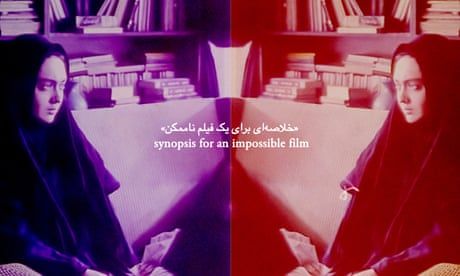
The UK-based artist and film-maker reveals how the work that has won her the prestigious award was the result of watching 417 films made in post-revolution Iran, many of which she ‘fell in love with – and felt betrayed by’
In the first weeks of the pandemic, Maryam Tafakory set herself the task of watching 417 films made in post-revolution Iran. She soon found something curious: the recurring use of bags. Objects such as bags are often deployed by film-makers as substitutes for actual physical contact between a man and a woman, in a country where such depictions of intimacy are prohibited.
Focusing on films spanning nearly three decades, the UK-based artist built on research she originally began three years earlier for her PhD, to create several films and video essays. The first is Irani Bag, which uses a clip from a 1992 Iranian production, The Song of Tehran and features a couple seen from behind each holding a strap from the same bag, instead of taking each other’s hands. “Learning to touch without touching,” says a text inserted alongside split-screen videos in the 2020 work. In another clip, a bag is used to separate two actors sat on the back of a motorbike.
Continue reading...